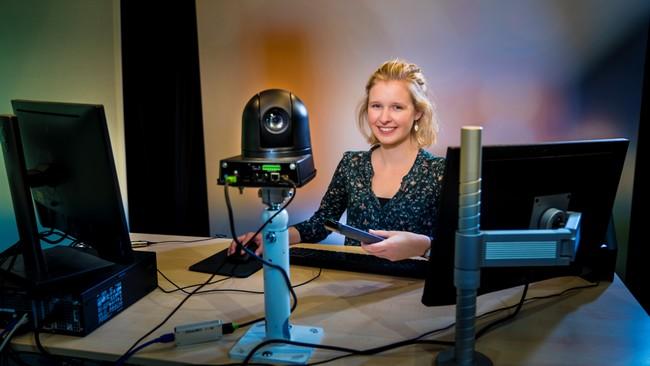Top teachers call for time and space in corona crisis

Until the summer, higher education will probably continue in its present form. While this may not be ideal, it turns out that much can be achieved in terms of organising lectures and tutorials remotely. Teaching staff are making the best of a tough situation.
But the new academic year is a different story, says Marc van Mil, lecturer at Utrecht University and board member of the Comenius Network. “We definitely need to do more than simply putting lectures online and organising Zoom tutorials.”
Quality in education
The 225 members of the network (in Dutch, ed.) share a profound commitment to quality in education. In recent years they have been nominated for the national Teacher of the Year Award or have earned a Comenius grant for educational innovation. And even in these trying times, they are determined to provide students with a sound education.
Van Mil believes that special attention needs to be paid to the students due to start their studies in the coming academic year. “There are a lot of difficulties to overcome to provide them with a high standard of education. How do you give them a sense of connection to their programme, to each other and to their teachers? How do you ensure meaningful interaction? These things are not easy to achieve through a screen.”
Minister of Education Ingrid van Engelshoven understands this too, judging by the concerns she expressed at Monday’s digital meeting organised by the Comenius Network in conjunction with her ministry, the Dutch National Students’ Association (ISO), and SURF’s experts on IT in education. The minister was keen to highlight ways of bringing students together in groups of thirty. In her view this is especially important for first-year students.
Even so, quality in education is about more than seeing each other every now and then. An inspiring educational mix needs to be created in which online and on-site education reinforce each other: blended learning. That’s the big question: how can we deliver an outstanding mix of online teaching and teaching on campus?
Helping hands
“This challenge will demand a great deal of lecturers and we feel strongly that students have a right to expect that investment”, says Van Mil. Teaching staff must be given the time and space to dedicate themselves to education: a tough choice to make when it so often comes at the expense of their research and other responsibilities. This calls for “helping hands”, for a wider involvement in education. “For example, universities could extend the contracts of postdocs and PhD students who want to do extra teaching. Universities of applied sciences will also have to take on more teaching staff, on a temporary basis if necessary.”
Nor should lecturers be penalised for choosing to focus on educational development. As Van Mil points out, “The worst thing a highly motivated teacher can hear is that it can’t be done, or that it’s bad for your career.”
The Dutch Research Council should also take this into account when planning its funding. After all, they set the deadlines that govern when academics have to apply for grants: these should really be extended for lecturers who are giving their full attention to teaching.
In any case, the crisis should boost the universities’ resolve to give greater recognition and appreciation to their educational activities. To date, universities have been inclined to measure staff achievement in terms of research grants and articles published. All too often this led them to compromise on education, and this is something the Comenius Network wants to change. “Hopefully that process will now gain momentum,” Van Mil adds.
Quick fixes
He observes that students have been quick to appreciate the universities’ rapid transition in times of crisis. “But they also see that the teaching they are currently getting is sometimes a little lacking in substance. It’s good that they are critical. If we continue to operate like this for the foreseeable future, we need to look beyond quick fixes. It will be about embracing a new approach to educational design.”
That will take time and money, he warns. “You can’t just ask lecturers to take all that on in the evenings and weekends. They are already up to their ears in work.”